1 citations,
May 2022 in “Journal of Drugs in Dermatology” Low-dose naltrexone and platelet-rich plasma can regrow hair in lichen planopilaris.
 1 citations,
July 2020 in “Journal of cosmetic dermatology”
1 citations,
July 2020 in “Journal of cosmetic dermatology” A woman on immunosuppressants developed two rare scalp conditions, which improved with specific treatments.
1 citations,
December 2015 in “TURKDERM” Lichen planopilaris can be accurately diagnosed and effectively treated.
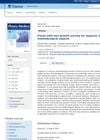 December 2024 in “Planta Medica”
December 2024 in “Planta Medica” Certain plants may help hair growth in alopecia.
June 2024 in “Deleted Journal” Herbal plants may help treat hair loss with fewer side effects than synthetic drugs.

Minoxidil may help with hair regrowth and disease stabilization in scarring alopecia, but side effects vary, needing more research for consistent safety and effectiveness.
 September 2020 in “Journal of Cutaneous Pathology”
September 2020 in “Journal of Cutaneous Pathology” A patient with a skin condition had unusual scarring hair loss but improved with treatment.
 April 2019 in “Journal of Investigative Dermatology”
April 2019 in “Journal of Investigative Dermatology” The research found that certain characteristics like age, sex, race, marital status, and education level can influence whether alopecia patients stick to their hair loss treatment with topical minoxidil.
 January 2019 in “International Journal of Pharmacognosy and Clinical Research”
January 2019 in “International Journal of Pharmacognosy and Clinical Research” Mexican medicinal plants are used to treat hair loss.
 69 citations,
December 2011 in “Journal of Ethnopharmacology”
69 citations,
December 2011 in “Journal of Ethnopharmacology” Some Thai plants, especially Carthamus tinctorius, could help prevent hair loss and promote hair growth without adverse effects.
 1 citations,
August 2020 in “Food Research”
1 citations,
August 2020 in “Food Research” Plant extracts like Avicennia marina, Boehmeria nipononivea, and Camellia sinensis could potentially treat hair loss with fewer side effects than synthetic drugs.
 March 2024 in “Case Reports in Dermatology”
March 2024 in “Case Reports in Dermatology” A woman's hair loss was misdiagnosed as alopecia areata but was actually lichen planopilaris, needing immediate and ongoing treatment.
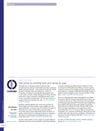 September 2016 in “Medical Journal of Australia”
September 2016 in “Medical Journal of Australia” Planting trees and doing yoga might make you feel better; yoga can help with asthma symptoms, and certain treatments can improve female hair loss.
Some Himalayan plants with higher antioxidant activity can promote hair growth better.
March 2023 in “Aktualʹnì pitannâ farmacevtičnoï ì medičnoï nauki ta praktiki” Both new minoxidil formulations significantly stimulated hair growth and improved dermal metabolism.
67 citations,
July 2011 in “Clinical, cosmetic and investigational dermatology” The document suggests a personalized treatment plan for alopecia areata based on the patient's age and hair loss severity, using a range of therapies ranked by effectiveness and safety.
 2 citations,
January 2022 in “Rasayan journal of Chemistry”
2 citations,
January 2022 in “Rasayan journal of Chemistry” Compounds from the Sansevieria trifasciata plant might be effective for treating hair loss.

Three Indian medicinal plant compounds help hair growth.
 4 citations,
September 2020 in “BioMed Research International”
4 citations,
September 2020 in “BioMed Research International” Timosaponin BII, a plant extract, was found to promote hair growth in mice, similarly to minoxidil.
1 citations,
April 2022 in “Journal of Ayurveda and integrative medicine” Blumea eriantha DC extract shows strong potential for promoting hair growth.
 November 2019 in “Journal of Aesthetic Nursing”
November 2019 in “Journal of Aesthetic Nursing” The article concludes that a thorough diagnosis and treatment plan, including medications, non-invasive methods, or surgery, is important for managing hair loss, with a combination of minoxidil and finasteride being particularly effective.
 February 2023 in “Molecules”
February 2023 in “Molecules” Cactus extract from Notocactus ottonis may help promote hair growth.
 11 citations,
September 2020 in “Journal of Cosmetic Dermatology”
11 citations,
September 2020 in “Journal of Cosmetic Dermatology” Silver nanoparticles can significantly promote hair growth.
March 2023 in “Anais Brasileiros De Dermatologia” Topical minoxidil is the best-supported treatment for female hair loss, but personalized plans are needed.
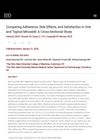 January 2025 in “Journal of Drugs in Dermatology”
January 2025 in “Journal of Drugs in Dermatology” Oral minoxidil is easier to use and more satisfying for hair loss treatment than topical minoxidil.
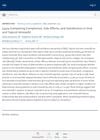 September 2024 in “Journal of the American Academy of Dermatology”
September 2024 in “Journal of the American Academy of Dermatology” Oral minoxidil is easier to use and more satisfying for hair loss treatment but may cause more unwanted hair growth.
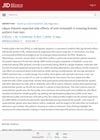 July 2024 in “Journal of Investigative Dermatology”
July 2024 in “Journal of Investigative Dermatology” Most women continued using oral minoxidil for hair loss despite mild to moderate side effects.
 41 citations,
July 2015 in “Current Drug Discovery Technologies”
41 citations,
July 2015 in “Current Drug Discovery Technologies” Some plants may help with hair growth and have fewer side effects than synthetic drugs, but more research is needed to confirm their effectiveness.
 1 citations,
March 2018 in “Dermatologie pro praxi”
1 citations,
March 2018 in “Dermatologie pro praxi” Most over-the-counter hair loss treatments lack strong evidence of effectiveness, except for minoxidil, which works but stops working if you stop using it.
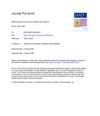 August 2020 in “Journal of The American Academy of Dermatology”
August 2020 in “Journal of The American Academy of Dermatology” Oral minoxidil can improve hair thickness and a comprehensive treatment approach leads to better alopecia outcomes.





















